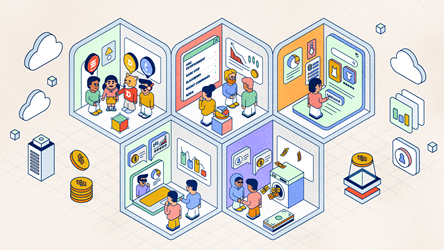Eco-Anxiety: The Psychological Impact of Climate Change

A TREND TO WATCH
By now, anyone who has been paying attention would know of the physical impact of climate change. In recent years, however, the psychological effects are becoming increasingly apparent.
The American Psychiatric Association describes eco-anxiety as “a chronic fear of environmental doom.” While it not considered a diagnosable condition, eco-anxiety can be just as debilitating, with crippling effects on one’s lifestyle and mental health.
Individuals with eco-anxiety may experience feelings of vulnerability, helplessness and emotional distraught over potential planetary destruction. This may be to the point where everyday choices can leave them feeling anxious and guilty.
Eco-anxiety, also known as climate anxiety, is influencing the career choices of youths, and their decision to have children in the future. This is led by concerns over the state of the environment decades down the road.
As solving environmental issues relies on societal change, including government input and corporations taking responsibility for their contributions to climate change, dealing with feelings of little control as individuals can be all the more frustrating.
Among other things, eco-anxiety can be attributed to the constant and overwhelming media coverage of environmental destruction. One way to manage eco-anxiety is to be mindful of one’s consumption of news and social media, as well as finding action-oriented community groups for support and ways to take collective action.
Food for Thought:
The rise of eco-anxiety among Singapore’s youth may lead to significant changes in birth rate, economic growth and future plans for development, such as potentially more people remaining single or having smaller families, and reduced spending and consumption. How might this affect Singapore’s policies?
Listen:
A public officer by day and a biodiversity educator outside of office hours, Neo Xiaoyun shares what she’s learnt from her experiences with climate anxiety.
GLOBAL OUTLOOK
Eco-Anxiety Around the World
How different countries are experiencing and dealing with eco-anxiety.
Australia
For thousands of Australians whose homes and livelihoods were lost to the raging bushfires of early 2020, the mental health impact is likely to last for a long time. According to research, such fires are also threatening the identities of Australian farmers as well as their sense of place, affecting their mental health significantly. This is worsened by the trauma and shock induced by widespread devastation, health concerns from air pollution, fear of recurrence and anguish over half a billion wildlife lost.

The US
In a 2019 survey, 57% of US teens reported being fearful of climate change while 52% felt angry, both higher rates than among adults. Besides youths hitting the streets with placards and megaphones to advocate for change, green projects are surfacing more than ever, one of which is the Green New Deal introduced by New York representative Alexandria Ocasio-Cortez. The congressional resolution aims to reduce greenhouse gas emissions by cutting back on fossil fuels while creating new high-paying jobs in clean energy industries.
Singapore
Singapore’s first climate rally in 2019 saw a turnout of more than 1,700 participants, with activists expressing their environmental concerns and calling for government action. In 2020, organisations like The Good Space and Singapore Writers Festival held virtual discussions on eco-anxiety. Nominated Member of Parliament Anthea Ong has also encouraged citizens to channel their eco-anxiety into concrete actions such as speaking to one’s representative in Parliament and volunteering for environmental projects.

- Caroline Hickman, climate psychologist and researcher at the University of Bath
EXPLAINER
Do I Have Eco-Anxiety?
Although individuals with eco-anxiety may experience general symptoms of anxiety, the two are distinctly different. Here is how to tell them apart.
| Eco-Anxiety | Anxiety Disorder(s) |
| Psychological phenomenon, general worry and dread. | A group of mental illnesses that cause constant and overwhelming anxiety and fear. |
| Caused by climate change and an increase in environmental crises, experienced directly or via news reports. | Generalised anxiety disorder, or GAD, cannot typically be attributable to specific causes. |
| Symptoms: trauma and shock, panic attacks, anxiety, depression, feelings of helplessness, guilt and frustration, etc. | Symptoms: nervousness, restlessness, panic attacks, rapid heart rate, hyperventilation, fatigue, etc. |
| For most people, it is a response to the climate crisis that can lead to positive lifestyle changes in favour of the environment. | Can have significant effects on the body. Long-term anxiety may increase one’s risk of developing chronic physical conditions. |
Can be eased by:
|
Can be treated by:
|

LEARN THE LINGO
Solastalgia
A relatively new word used to describe emotional or existential distress cause by the changing environment.
Topophilia
A strong sense of belonging to a place. This often comes with a sense of cultural identity among certain groups of individuals.
Topophilia and Placemaking in Singapore
Love for one’s surroundings can lead to the reinvention of such locations into valued community spaces.
Like other metropolitan cities, Singapore’s urban landscape is steeped in history and culture. Placemaking incorporates urban planning, cultural policy, community engagement and architectural design to integrate our heritage buildings into modern use.

To get more stories like this, subscribe to the Challenge Telegram channel.
- POSTED ON
Jul 28, 2021
- TEXT BY
Chee An Lyn
Siti Maziah Masramli
- ILLUSTRATION BY
Mushroomhead









